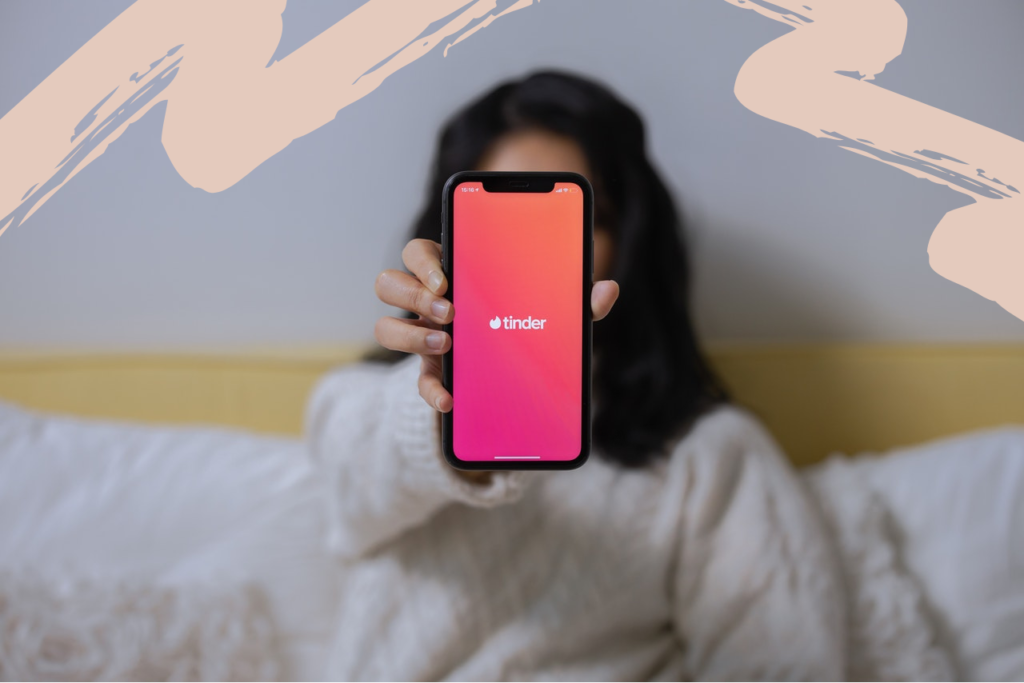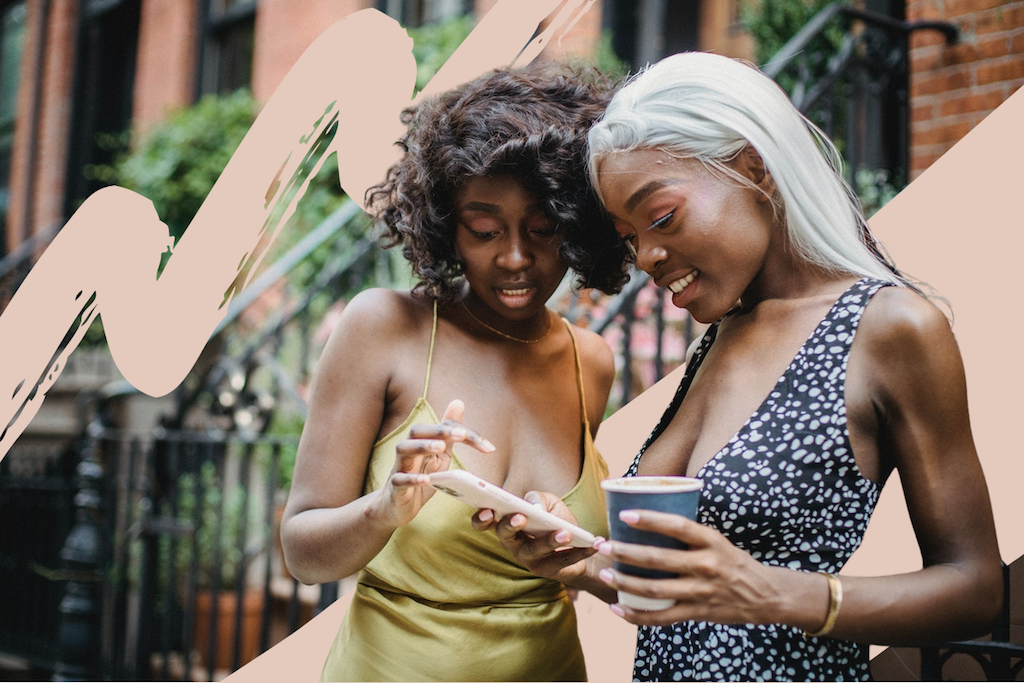Modern day dating certainly presents its own unique set of challenges, and the vast majority of those revolve around the use of dating apps.
Indeed, dating apps have become the most popular way to find love, meaningful connections, hook-ups and more. Not only are dating apps an easy and simple way to see what the dating market looks like, but with hundreds of new user profiles’ available each day to interact with, they allow for so much more choice when it comes to who takes your fancy and who doesn’t.
Despite the obvious benefits – choice, convenience… – of creating a dating app profile and connecting with new people, many people have their reservations when it comes to putting themselves out there online. And for good reason; it’s the Wild West out there, with new rules of etiquette to learn, slang to untangle, and a fair few wrong’uns lurking in the shadows.
As such, online dating safety is vital. In fact, according to a 2021 recent poll, a more extensive vetting process is the main factor that would encourage Brits to use online dating services more often. Which is exactly what new dating app Fluttr are offering. With their safer approach to online dating, here they have offered some of their tips. So, here are 7 tips for staying safe when using dating apps.
PRIORITISE APPS WITH AN IDENTITY VERIFICATION FEATURE
As we mentioned way back when in our introduction, and as a response to concerns over the safety of online dating, many dating apps have now introduced vetting, background checks or identity verification features.
Whilst there are some ethical concerns over such tools, if safety is your primary concern when dipping your toes in the pool of potential love interests, you might find peace of mind in such features. Some of the dating apps that include background checks include Hinge, OKCupid, Match, POF and Flutter, with Tinder looking to roll out the feature in the near future, too.

BE SUPER CAUTIOUS WHEN SHARING PERSONAL INFORMATION
And if in any doubt, don’t.
When speaking with a new connection, it is important you keep some (or, let’s be honest, most) aspects of your personal life private until you are comfortable with this person.
Despite numerous safety measures in place to protect dating app users, you are still getting to know a stranger. And some of the strangers out there are, let’s be honest, strange.
You wouldn’t give away information such as your home address, place of work, or personal contact number to a stranger in the street, so the same should be said for any online dating space. You should hold off giving too much personal information away until you feel you can trust this person, and sometimes, aside from potentially your phone number, this information shouldn’t be exchanged until after your first in-person date.
GET TO KNOW YOUR MATCH FIRST
A sensible piece of safety advice is to get to know the person you have connected with before agreeing to a real-life date.
As much as you may want to get out there and have a good time, for your safety, learning more about your latest match will ensure that you’re not diving headfirst into a risky or just potentially awkward situation.
Use the chat feature of your dating app to get to know their interests and to get a good feel for their personality. This may be enough for you to determine whether a real-life date is a good idea or not. A few dating profile red flags may include:
- A neediness or aggressiveness when you don’t reply promptly
- Immediate sexually explicit messages
- A vague or incomplete profile, with the face obscured
- Excessive negativity in their bio
- ‘… need not apply’
- Cropped photos that might reveal the presence of a partner

GET TO GRIPS WITH MODERN DATING LINGO AND ITS IMPLICATIONS
If you’re to find love in 2022, then it’s essential that you master this new and confusing vernacular.
Whilst we’d be here all day and then some if we were to list a comprehensive guide to dating terminology in 2022, it is worth acknowledging a few terms that emerged last year and seem to succinctly sum up where modern dating is at. As Dictionary.com explains:
- Fauci-ing – Named after US doctor Anthony Fauci, fauci-ing is the act of turning down a date because the suitor isn’t taking the pandemic seriously enough.
- Zombie-ing – We’ve all heard of ghosting. Well, zombie-ing is something like ghosting in reverse, when a partner or love interest who previously ghosted you rises from the dead, messaging you after months of silence as if nothing ever happened.
- Orbiting – An extension of ghosting, orbiting refers to a ghoster who continues to follow you on social media, perhaps even liking your posts from time to time, rather than completely severing ties.
- Pocketing – When one keeps their new partner in their pocket, it means that they are reluctant to introduce them to friends and family or announce their new relationship on social media.
- Soft launching – On the flip side, some may choose to soft launch their new relationship, gently introducing their new partner into their social media accounts via the odd Snapchat story and Instagram post, without officially ‘announcing’ things.
Of course, that’s just a snapshot of the bemusing, amusing world of online dating parlance. More important is to get to grips with the implications of all the various terminology, to avoid any confusion or misread signals.
It’s always, always a good idea to be clear but firm about what you’re after. If it’s a relationship, be upfront about it, as many will be looking for a hookup only. Likewise, if it’s the latter you’re after, there’s no shame in saying so (in a respectful, non-sleazy way, of course).
THINK CAREFULLY ABOUT YOUR PICTURES
As you build your profile, dating apps will request the upload of one or more pictures of yourself, so potential matches can see what you look like. Fair enough; as we said earlier, a potential red flag in the online dating world is the lack of clear pictures.
That said, it is important to be careful and cautious with the pictures you share, not only so you are honest about your appearance but so that you don’t share too much. Any photos that reveal the neighbourhood in which you live or your regular social hangouts (a favourite coffee shop, your local pub…) shouldn’t be shared.
You should also consider the privacy of any other people who are in the photos you use for your dating app profile. Images of you with your friends and family are nice, sure, but will they want their face on a dating app? Being picky with the pictures you choose to share may help you to avoid attracting unwanted attention and uncomfortable situations.
FOUND A MATCH? STAY IN THE APP
Dating apps have security and safety features which can help keep you protected. For your safety and your match’s safety, it is best to stay within the app. Users with bad intentions will often try to move the conversation over to text message where they can not be monitored by an app. An app’s safety features can protect you from harmful language and those users misusing the app.
TRUST YOUR INSTINCTS
You know that little voice in the back of your mind that tells you when you’re about to make a colossal mistake? We tend to ignore it when we’re younger, choosing to follow heart over mind every time. But we all come to realise eventually that we could have saved ourselves a great deal of heartache by trusting our instincts.
If you have a bad feeling about a potential match, have faith in your intuition; there are plenty more folk out there, after all.
THE BOTTOM LINE
Remember dating should be fun, safe, and honest. As long as dating app users are aware of the safety measures in place to protect them and know how to keep themselves safe, dating apps can be great places to make genuine connections.
If you’re looking for a great venue for a first date, check out this piece on why Swingers Crazy Golf is IDEAL for a first date in London.





